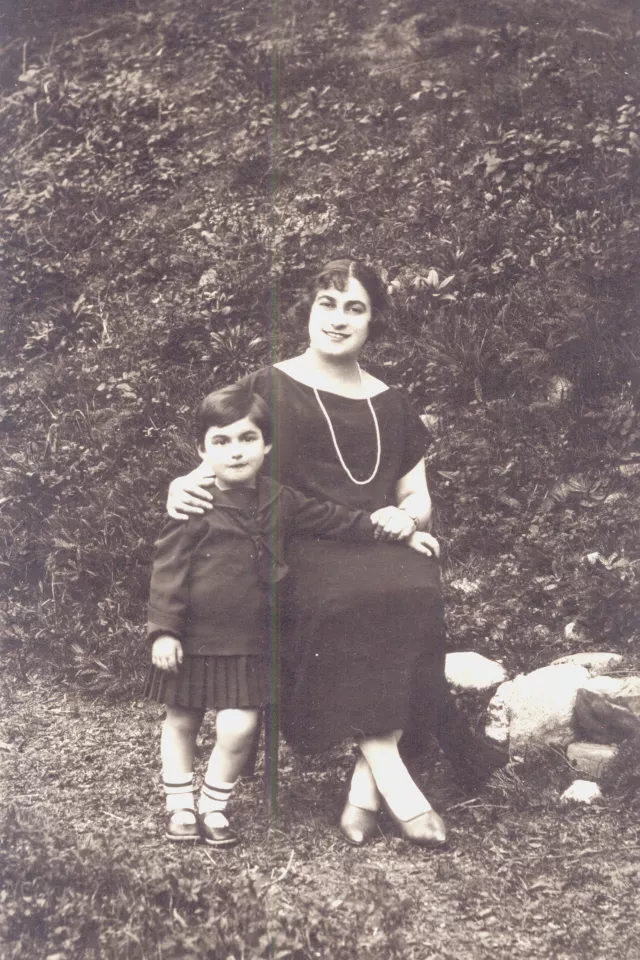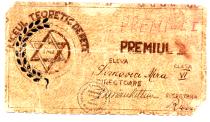Julieta Rosman with Silvia Pascal
This woman sitting is a cousin of ours with my sister, Julieta. The cousin's name is Silvia Pascal. When this picture was taken she wasn't married yet, so her last name was still Grunberg. They went together to Zavoi park in Ramnicu Valcea, on the banks of the Olanesti, where there was always a photographer. She was our first degree cousin, the daughter of my mother's sister, Aunt Emilia. My mother had two sisters.
My grandmother's eldest daughter, Emilia, who was twenty years older than my mother, married an upholsterer and left to Ramnicu Valcea with him. He was a talented man and he made my grandmother and her other two daughters move to Ramnicu Valcea. The girls got married there and stayed there for a while. Eventually, my mother's sisters moved back to Bucharest with their husbands and children. My mother was the only one who remained in Ramnicu Valcea, where she got married in 1913.
My sister is 6 years older than me. The two of us were the only Jewish girls in our high school. After my sister left, I was the only one. She got the school's first prize for eight years in a row. I only got the second or third prize in my class, never the first. Because we got all those prizes in school, my sister and I had earned some esteem that had nothing to do with who our father was. For instance, I was in the same class with the daughter of the National Bank's governor, Iliescu. In a town of 10.000 people, this man was like a king. He lived upstairs from the bank. Once a year I was invited to Irina Iliescu's birthday party. This made my poor father very proud, because he had never set foot in the house of a dignitary. 'My girl is going to the governor of the National Bank to visit his daughter! Imagine that!' I would greet Mr. Iliescu with 'Saru-mana' [Ed. note: Old, contracted greeting meaning 'I kiss your hand'. Its use today may vary with the age, the education, the geographical area and even the gender of the interlocutors, but it is mainly reserved for informal interactions between a man and an older, less educated woman, in which only the man uses it.] At that time, 'Saru-mana' was used when addressing men too. What I'm trying to say is that my sister and I became rather famous in Ramnicu Valcea by ourselves.
On vacations we didn't go to the seaside, but my father would rent a carriage and take us to Calimanesti, or Olanesti, or Ocnele Mari. We left in the morning and came back in the evening. He took the carriage from a cabman's post, drove it home and took us wherever we wanted.













